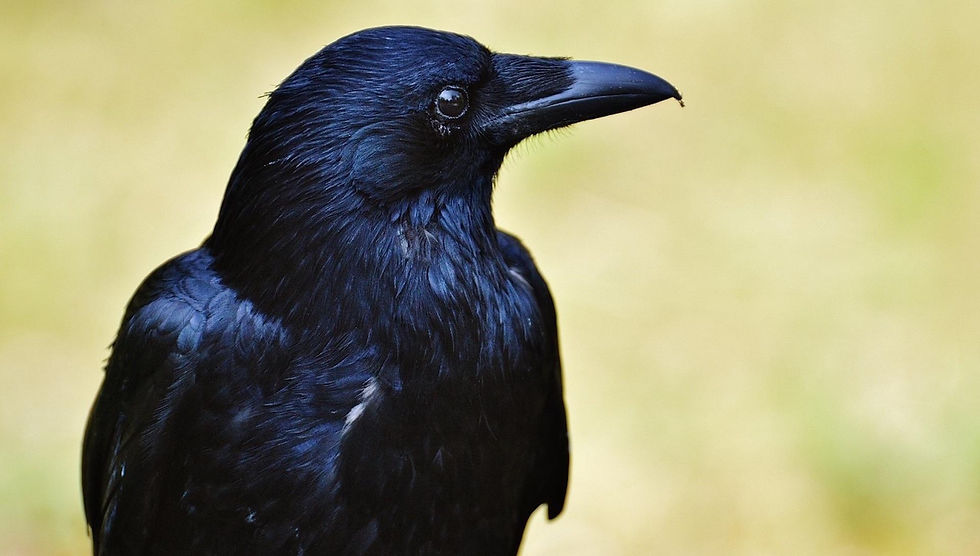Bird-brained? No, Big-brained
- LAUREN HARPER
- May 2, 2024
- 3 min read

It actually is small-brained when it comes to birds, but the amount of brainpower and cognitive function they have in those little heads is comparable to that of big-brained, complex mammals such as ourselves.
This week, I watched NOVA's documentary Bird Brain where avian researchers delved into instinctual versus intelligent responses in parrots, crows, and other birds. These responses were analyzed using puzzles! When presenting the birds with different, unfamiliar puzzles, the birds were often able to visualize the necessary steps needed to correctly fulfill the task. For example, the birds were challenged with retrieving the treat dangling from one of two strings in an X formation. The birds weren't fooled and immediately figured it out; the researchers explained how this level of problem-solving requires a deeper layer of cognitive processing. In another puzzle, when presented with a problem that had four possible solutions, "both birds found four different solutions to the puzzle, showing they're able to think flexibly. The ability to think flexibly is certainly a hallmark of a cognitively advanced animal," (21:17). Ludwig Huber, an Australian biologist, has conducted various studies on flexible thinking in kea parrots that is often demonstrated in their advanced ability to use tools to complete various behaviors. This ability was actually shown in the film as the parrots were attempting to solve the puzzle! These examples directly relate to the main ideas in the TIMES magazine article “Intelligence.” The article toggled with the idea of consciousness within animals. Colin Allen, a featured professor, shared that he thinks “good evidence of consciousness would be some ability for animals to know they’ve made a mistake, to self-correct” (Kruger, 13). Under this perspective, birds would most definitely be considered conscious]. The documentary proved again and again that these birds are able to problem solve and function in ways that an animal without consciousness could not.
Another ecologist John Marzluff explained how flexible thinking in corvids (the specific genus, or group, of bird that was tested) comes from a constant desire to explore and learn about their environment. Marzluff specializes in crow cognition, specifically the ways crows communicate and relay information to each other. Marzluff conducted an experiment testing whether crows would discriminate a scary mask and remember it as dangerous in future exposures. Not only did the crows remember and respond accordingly, but they continued to respond in future generations. He stated, “It's been 11 years since we caught seven birds on our campus with this mask. And nearly half of all the birds we encounter on a given day respond strongly to that face. Even though they weren't even born at the time we first did our capture,” (47:31). This not only demonstrates high intelligence but a complex social network in crows. Social learning was discussed as high-level thinking in the film, especially when it comes to relaying information about threats. Isabella Scheiber has studied the effects of social support and allies on the way geese behave. She has noticed that social networks benefit geese by improving their chances of future reproduction. These social networks are so important! Another TIMES article delved into the many benefits friendships bring, but they also brought up survival. Ultimately, animals with friendships have lower stress hormones and a longer life.
While it is very clear through the film that birds have evolved advanced cognitive functions, the documentary did address that their understanding of emotions in birds is limited. I feel that if these creatures are capable of so many behaviors that we are, with a much smaller brain and body, then why wouldn’t they feel emotions? Either way, the documentary was incredibly informative and engaging, and I highly recommend taking a watch.


Comments